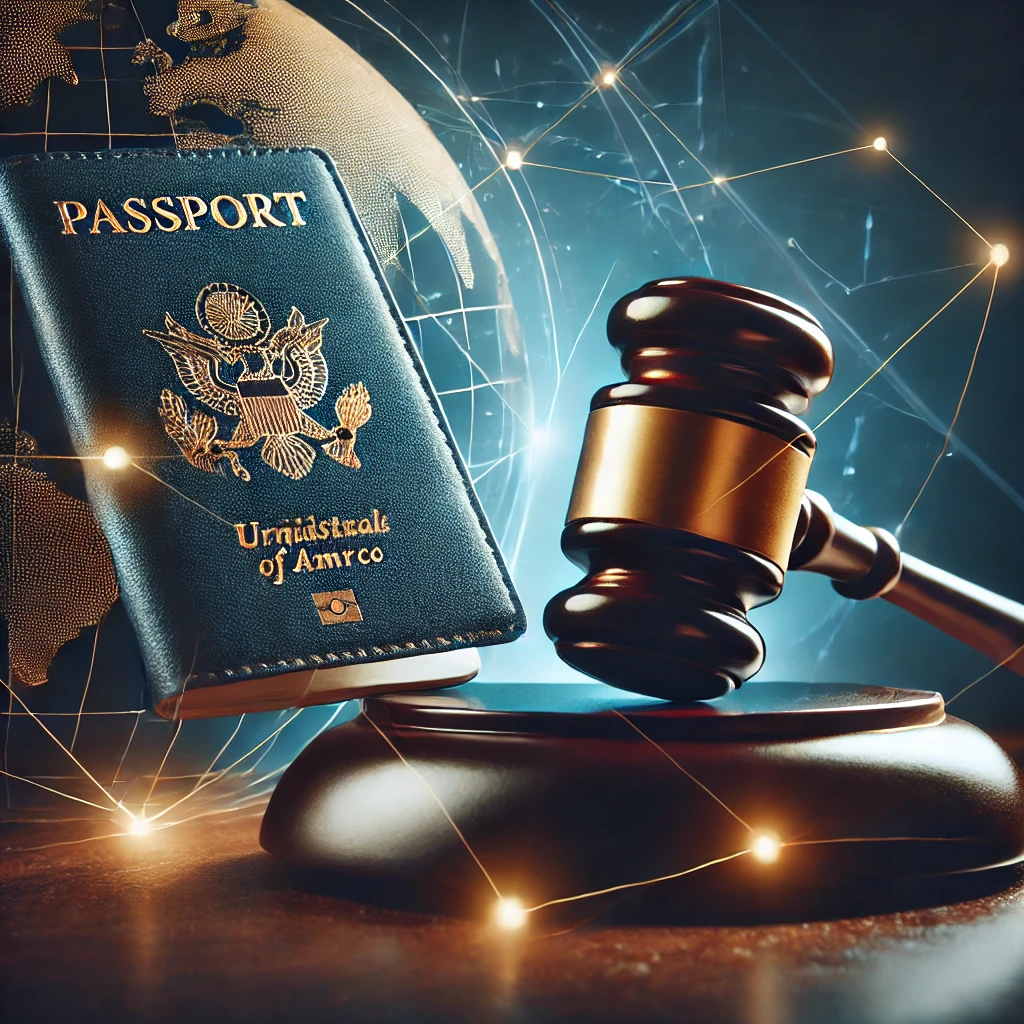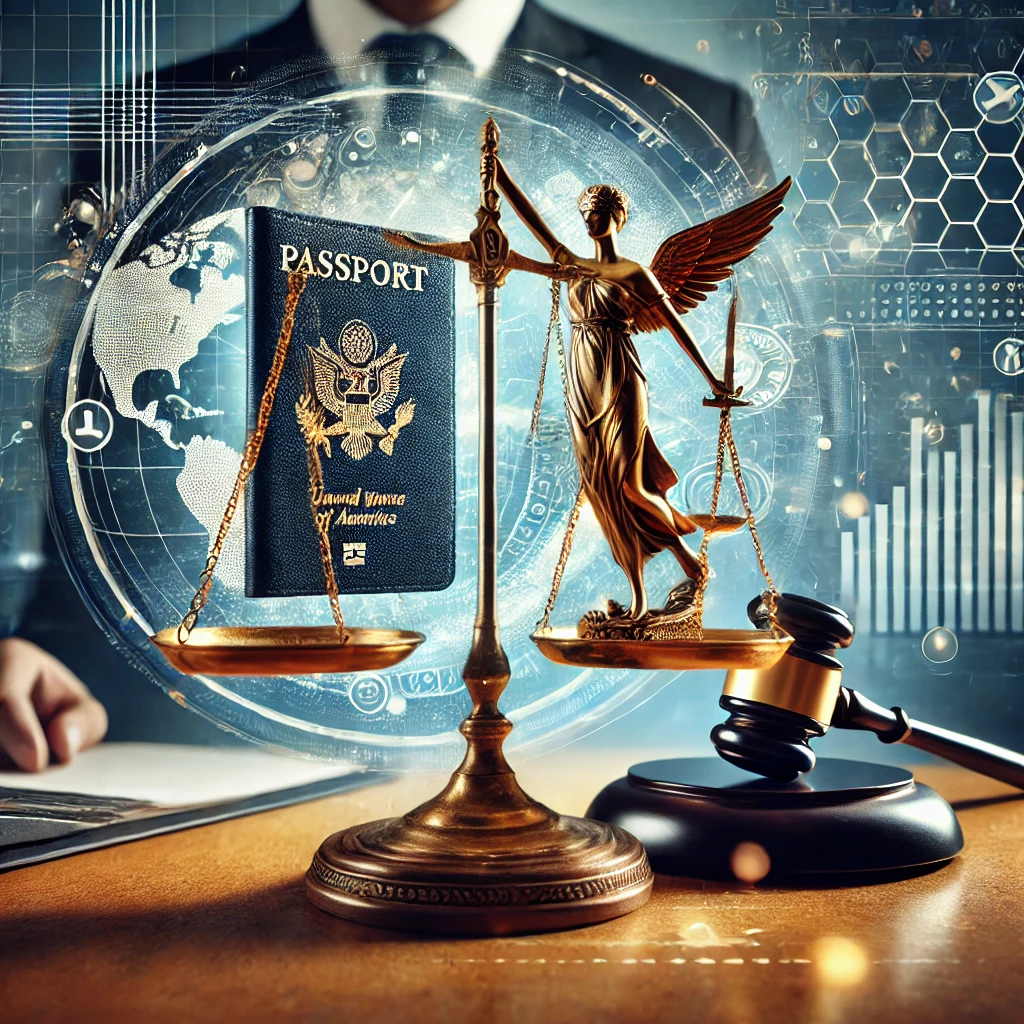
Expert Criminal Immigration Attorney: Protect Your Rights and Immigration Status Today
Navigating the intricate intersection of criminal law and immigration regulations can be daunting. For non-citizens facing criminal charges, the stakes are exceptionally high, as certain convictions can lead to severe immigration consequences, including deportation. This comprehensive guide aims to shed light on the role of a criminal immigration attorney, the complexities of “crimmigration” law, and the critical importance of specialized legal representation in such cases.
Understanding Crimmigration: The Convergence of Criminal and Immigration Law
“Crimmigration” refers to the convergence of criminal law and immigration law. This intersection has become increasingly significant, as criminal convictions can directly impact an individual’s immigration status. For non-citizens, even minor offenses can trigger deportation proceedings or hinder the ability to obtain legal status in the United States.
The Role of a Criminal Immigration Attorney
A criminal immigration attorney specializes in cases where criminal charges intersect with immigration issues. Their expertise encompasses both criminal defense and immigration law, enabling them to provide comprehensive legal strategies that address the unique challenges faced by non-citizens in the criminal justice system.
Key Responsibilities of a Criminal Immigration Attorney:
- Assessing Immigration Consequences: Evaluating how specific criminal charges or convictions may affect a client’s immigration status, including potential deportation or inadmissibility.
- Strategic Defense Planning: Developing defense strategies that aim to mitigate or eliminate adverse immigration outcomes, such as negotiating plea agreements that minimize immigration repercussions.
- Post-Conviction Relief: Assisting clients in vacating or modifying past convictions that negatively impact their immigration status, thereby reopening opportunities for legal relief.
- Representation in Immigration Proceedings: Advocating for clients in immigration court, including deportation defense and applications for relief such as asylum or cancellation of removal.
Why Specialized Legal Representation Matters
The intersection of criminal and immigration law is complex and fraught with potential pitfalls. General criminal defense attorneys may not fully grasp the immigration consequences of certain pleas or convictions, potentially leading to unintended and severe outcomes for non-citizen clients. A criminal immigration attorney possesses the dual expertise necessary to navigate these complexities effectively.
Common Criminal Charges Affecting Immigration Status
Certain criminal offenses are particularly detrimental to immigration status. Understanding these categories is crucial for non-citizens:
- Crimes Involving Moral Turpitude (CIMT): Offenses that are inherently immoral or dishonest, such as fraud or theft. Convictions can lead to deportation or inadmissibility.
- Aggravated Felonies: A broad category that includes serious crimes like murder, rape, or drug trafficking. Convictions result in severe immigration consequences, including expedited removal and ineligibility for most forms of relief.
- Controlled Substance Offenses: Any violation related to controlled substances can trigger deportation proceedings, with limited avenues for relief.
- Domestic Violence Crimes: Convictions for domestic violence, stalking, or child abuse can lead to deportation and bar reentry into the U.S.
Navigating Plea Agreements and Their Immigration Implications
Plea agreements are common in criminal cases, but for non-citizens, the terms of a plea can have significant immigration consequences. A criminal immigration attorney can:
- Advise on Safe Pleas: Recommend plea options that minimize adverse immigration outcomes.
- Negotiate with Prosecutors: Work to secure agreements that protect the client’s immigration status.
- Ensure Informed Decisions: Provide clients with a clear understanding of how different pleas will affect their immigration future.
Post-Conviction Relief: A Pathway to Mitigating Immigration Consequences
For individuals with past convictions impacting their immigration status, post-conviction relief may offer a solution. This process involves legal mechanisms to vacate or modify convictions, thereby alleviating immigration penalties. A criminal immigration attorney can assess eligibility for such relief and navigate the complex legal procedures involved.
The Importance of Timely Legal Intervention
Time is of the essence in crimmigration cases. Early intervention by a criminal immigration attorney can:
- Prevent Deportation: By addressing issues promptly, attorneys can develop strategies to avoid removal proceedings.
- Preserve Eligibility for Relief: Timely action ensures that clients remain eligible for various forms of immigration relief.
- Protect Future Opportunities: Early legal guidance helps maintain options for future immigration benefits, such as naturalization.
Frequently Asked Questions (FAQs)
Q1: What should I do if I’m a non-citizen charged with a crime?
A: Seek immediate legal counsel from a criminal immigration attorney. They can evaluate the charges and develop a defense strategy that considers both criminal and immigration implications.
Q2: Can a criminal conviction lead to deportation even if I have a green card?
A: Yes, certain convictions can render lawful permanent residents deportable. It’s crucial to understand the immigration consequences of any criminal conviction.
Q3: How can a criminal immigration attorney assist with past convictions affecting my immigration status?
A: They can explore options for post-conviction relief, such as vacating or modifying convictions, to mitigate adverse immigration consequences.
Q4: What is the significance of Crimes Involving Moral Turpitude (CIMT) in immigration law?
A: CIMTs can lead to deportation or inadmissibility. The classification depends on the nature of the offense and specific case details.
Q5: Are there defenses available in deportation proceedings related to criminal convictions?
A: Yes, potential defenses include demonstrating eligibility for waivers, challenging the classification of the offense, or applying for relief such as asylum.
Navigating the complexities of criminal charges as a non-citizen requires specialized legal expertise. A criminal immigration attorney provides the necessary guidance to protect both your rights and your future in the United States. If you or a loved one faces such challenges, seeking prompt and informed legal assistance is paramount.
Note: This article is for informational purposes only and does not constitute legal advice. Consult with a qualified attorney for advice regarding your specific situation.
Understanding the Complexity of Crimmigration Cases
Crimmigration cases demand specialized legal attention because they involve two distinct areas of law: criminal defense and immigration. While criminal law governs offenses, penalties, and legal procedures, immigration law determines who may enter, stay, or be removed from the United States. A criminal immigration attorney bridges these two areas to provide holistic legal solutions.

How Criminal Charges Impact Different Immigration Statuses
1. Undocumented Immigrants
For undocumented immigrants, any interaction with the criminal justice system can lead to severe consequences, including detention and deportation. Certain offenses may bar these individuals from ever achieving lawful status.
2. Green Card Holders (Lawful Permanent Residents)
While green card holders have significant rights, certain criminal convictions can lead to deportation, make them inadmissible for re-entry into the U.S., or impact their ability to naturalize as U.S. citizens.
3. Visa Holders (Non-Immigrant)
Visa holders, including students, workers, and tourists, are vulnerable to visa revocation upon arrest or conviction. Criminal charges can terminate their stay in the U.S., leading to removal proceedings.
4. Asylum Seekers and Refugees
For asylum seekers and refugees, a criminal conviction may disqualify them from maintaining or seeking protective status. It may also subject them to deportation despite their previous claims for safety.
Key Strategies Criminal Immigration Attorneys Use
A skilled criminal immigration attorney employs various strategies to defend clients, including:
Risk Mitigation
- Preventing Convictions: Negotiating dismissals or alternative resolutions like diversion programs.
- Safe Plea Deals: Identifying charges that do not trigger adverse immigration consequences.
Creative Legal Arguments
- Challenging the classification of offenses as aggravated felonies or CIMTs.
- Advocating for reduced sentencing to stay below immigration thresholds.
Effective Courtroom Advocacy
- Presenting compelling arguments in both criminal and immigration courts.
- Defending against deportation through applications for cancellation of removal or waivers.
Common Scenarios Requiring Criminal Immigration Attorneys
DUI and Immigration Consequences
Driving under the influence (DUI) can pose significant risks for non-citizens, especially if the incident involves injuries or fatalities. Multiple DUI offenses or those categorized as aggravated DUIs can make individuals deportable.
Domestic Violence Accusations
Accusations of domestic violence may result in deportation if convictions meet certain criteria, such as physical harm. Attorneys help ensure fair treatment in cases where charges may arise from misunderstandings or false allegations.
Drug-Related Offenses
Drug charges are among the most challenging for non-citizens. Even minor possession convictions can trigger removal proceedings. A criminal immigration attorney can explore defenses or alternatives to avoid life-altering consequences.
Fraud and White-Collar Crimes
Fraud charges, such as credit card fraud or identity theft, fall under CIMTs. Convictions can lead to severe immigration penalties, making the expertise of a criminal immigration attorney crucial in these cases.
How Attorneys Work With Clients Facing Deportation
- Deportation Defense Criminal immigration attorneys craft robust defenses to prevent removal orders. They may argue for waivers, such as the 212(h) waiver for inadmissible green card holders.
- Adjustment of Status For clients eligible to adjust their immigration status, attorneys navigate the process while addressing criminal concerns to maintain eligibility.
- Asylum and Withholding of Removal Attorneys argue that deportation would endanger the client, presenting evidence of persecution or harm in their home country.
Criminal Immigration Attorney
Steps to Take if Arrested as a Non-Citizen
If you or a loved one is arrested, take these immediate steps to protect your rights and immigration status:
- Contact an Experienced Criminal Immigration Attorney Early legal intervention is crucial. Attorneys evaluate your case and protect your rights during legal proceedings.
- Exercise Your Right to Remain Silent Do not discuss your immigration status or criminal charges without your attorney present.
- Avoid Signing Documents Without Legal Counsel Authorities may pressure you to sign forms that can waive your rights or lead to self-incrimination.
- Gather Evidence Provide your attorney with any documents, witness information, or evidence that supports your case.
Preventative Measures to Protect Immigration Status
Know the Laws
Familiarize yourself with U.S. laws to avoid criminal charges. Even seemingly minor infractions can escalate into severe legal issues.
Maintain Legal Immigration Status
Ensure that your visa or green card remains valid by adhering to its terms and renewing it on time.
Consult Before Pleading
Always seek the advice of a criminal immigration attorney before accepting any plea agreement.
Frequently Asked Questions (FAQs)
Q6: Can a green card holder be deported for a misdemeanor?
A: Yes, certain misdemeanors, such as those classified as CIMTs or aggravated felonies, can lead to deportation even for green card holders.
Q7: What are my options if I am convicted of a deportable offense?
A: Options may include filing for waivers, post-conviction relief, or seeking cancellation of removal. A criminal immigration attorney can guide you through these steps.
Q8: How long does deportation defense take?
A: The timeline varies depending on the case’s complexity, court backlogs, and the type of relief sought.
Q9: Can I travel outside the U.S. with a pending criminal case?
A: Traveling while facing criminal charges or with certain convictions may jeopardize your re-entry into the U.S. Consult your attorney before making travel plans.
Q10: What is the cost of hiring a criminal immigration attorney?
A: Costs vary based on the case’s complexity, attorney experience, and required services. Many attorneys offer payment plans to make representation accessible.

Criminal Immigration Attorney
Here is a list of 20 distinguished criminal immigration attorneys across the United States, recognized for their expertise in handling complex cases at the intersection of criminal and immigration law:
- Charles Kuck
- Firm: Kuck Baxter Immigration LLC
- Location: Atlanta, GA
- Profile: Former National President of the American Immigration Lawyers Association (AILA), Charles Kuck is renowned for his extensive experience in immigration law, including criminal immigration matters.
- Shoba Sivaprasad Wadhia
- Affiliation: Penn State Law
- Location: University Park, PA
- Profile: A leading scholar in immigration law and author, Shoba Wadhia focuses on prosecutorial discretion and the intersection of immigration and criminal law.
- Cyrus D. Mehta
- Firm: Cyrus D. Mehta & Partners PLLC
- Location: New York, NY
- Profile: An expert in immigration law, Cyrus Mehta frequently handles complex cases involving criminal convictions and their immigration consequences.
- Nora Privitera
- Affiliation: Immigrant Legal Resource Center (ILRC)
- Location: San Francisco, CA
- Profile: As a Special Projects Attorney, Nora Privitera specializes in the immigration consequences of criminal convictions.
- Dan Kesselbrenner
- Affiliation: National Immigration Project of the National Lawyers Guild
- Location: Boston, MA
- Profile: Executive Director with extensive experience in criminal immigration law and author of key resources on the subject.
- Andrea Saenz
- Affiliation: New York Immigrant Family Unity Project
- Location: New York, NY
- Profile: Supervising Attorney providing representation to detained immigrants, focusing on those with criminal convictions.
- Rebecca Sharpless
- Affiliation: University of Miami School of Law
- Location: Coral Gables, FL
- Profile: Director of the Immigration Clinic, specializing in the intersection of criminal and immigration law.
- Sejal Zota
- Affiliation: National Immigration Project of the National Lawyers Guild
- Location: Boston, MA
- Profile: Legal Director with expertise in criminal immigration issues and policy advocacy.
- Manuel D. Vargas
- Affiliation: Immigrant Defense Project
- Location: New York, NY
- Profile: Founder and Special Counsel, recognized for his work on the immigration consequences of criminal convictions.
- Alina Das
- Affiliation: New York University School of Law
- Location: New York, NY
- Profile: Co-Director of the Immigrant Rights Clinic, focusing on criminal immigration matters.
- Michael J. Wishnie
- Affiliation: Yale Law School
- Location: New Haven, CT
- Profile: Clinical Professor specializing in immigration law and the rights of non-citizens with criminal convictions.
- Stephen Yale-Loehr
- Affiliation: Cornell Law School
- Location: Ithaca, NY
- Profile: Professor of Immigration Law with extensive experience in complex immigration cases, including those involving criminal issues.
- Mary E. Kramer
- Firm: Law Office of Mary E. Kramer, P.A.
- Location: Miami, FL
- Profile: Author of “Immigration Consequences of Criminal Activity,” providing expert counsel on crimmigration matters.
- Angelo Paparelli
- Firm: Seyfarth Shaw LLP
- Location: Los Angeles, CA
- Profile: Partner with a focus on business immigration and related criminal issues.
- Margaret D. Stock
- Firm: Cascadia Cross Border Law Group LLC
- Location: Anchorage, AK
- Profile: Recognized for her expertise in immigration law and its intersection with criminal law, particularly in military contexts.
- Daniel Kanstroom
- Affiliation: Boston College Law School
- Location: Newton, MA
- Profile: Professor and Director of the International Human Rights Program, focusing on deportation law and policy.
- Jennifer M. Chacón
- Affiliation: UCLA School of Law
- Location: Los Angeles, CA
- Profile: Professor specializing in immigration law and the criminalization of immigration.
- Lucas Guttentag
- Affiliation: Stanford Law School
- Location: Stanford, CA
- Profile: Professor and founder of the ACLU Immigrants’ Rights Project, with extensive experience in criminal immigration issues.
- Nancy Morawetz
- Affiliation: New York University School of Law
- Location: New York, NY
- Profile: Co-Director of the Immigrant Rights Clinic, focusing on deportation and detention cases involving criminal convictions.
- Kari Hong
- Affiliation: Boston College Law School
- Location: Newton, MA
- Profile: Assistant Professor with expertise in criminal immigration law and appellate advocacy.
When seeking legal representation for criminal immigration matters, it’s crucial to consult with attorneys who have a proven track record in this specialized field. The professionals listed above are recognized for their contributions and expertise in navigating the complexities of crimmigration law.
Final Thoughts: The Critical Role of a Criminal Immigration Attorney
Navigating the intersection of criminal and immigration law is a high-stakes endeavor. A criminal immigration attorney offers the expertise, strategies, and advocacy required to protect your future in the United States. Whether you’re facing criminal charges or seeking to mitigate past convictions, their guidance is invaluable.
If you need assistance, act quickly—time is often the difference between a successful outcome and lasting consequences.






